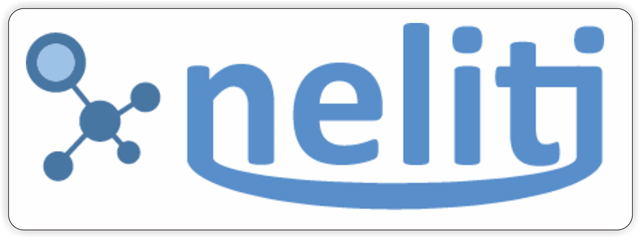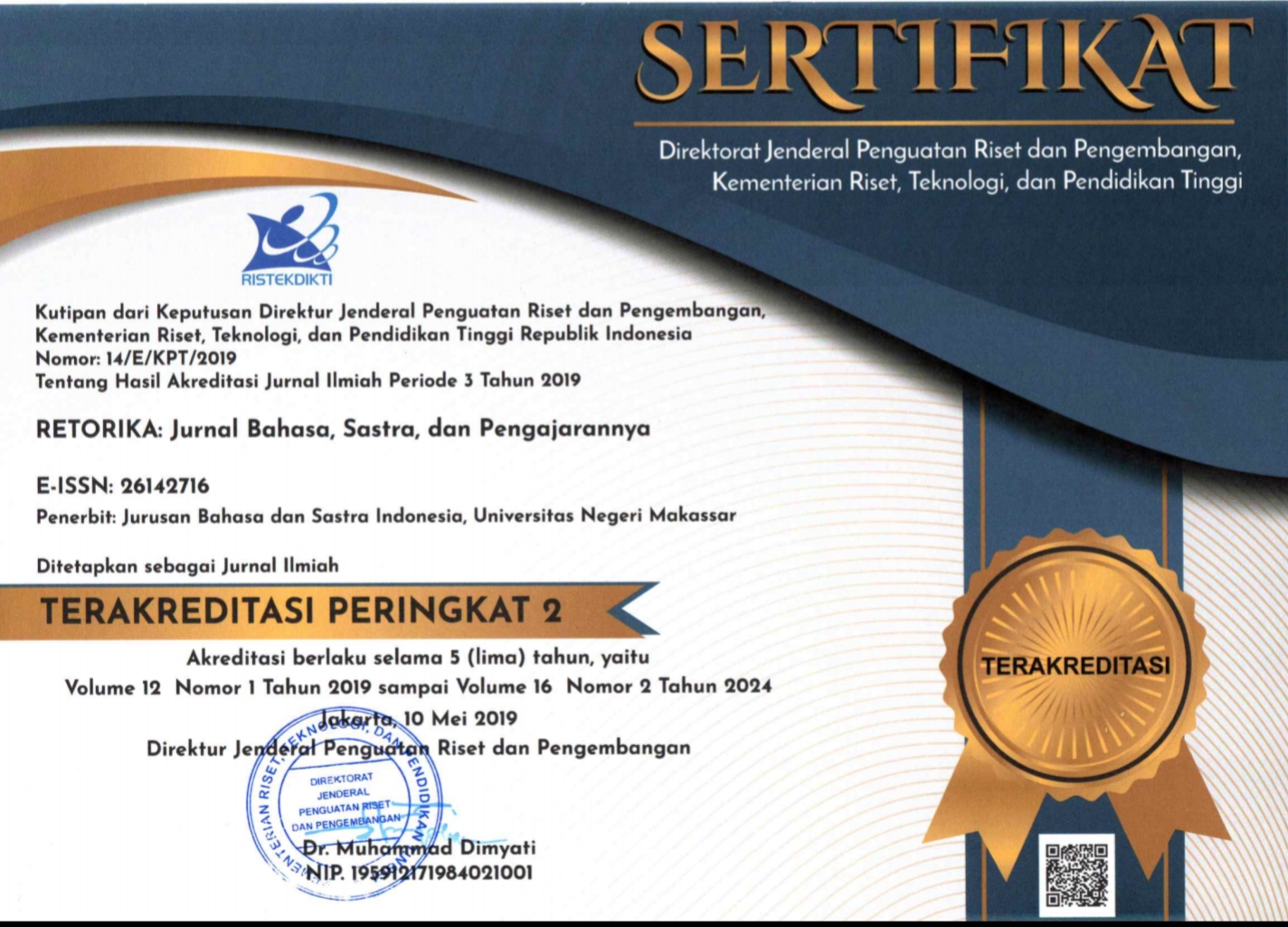INOVASI PEMBELAJARAN BAHASA INDONESIA MELALUI PENDEKATAN PROSES
Umar Mansyur
(1*),
(1) Fakultas Sastra, Universitas Muslim Indonesia
(*) Corresponding Author

DOI:
https://doi.org/10.26858/retorika.v9i2.3806
Abstract
Abstract: Indonesian Learning Innovation through Process Approach. Today there are many teachers who use the technique theoretically and rote learning, so learning activities tend to be rigid, monotonous, and boring. Especially in the Indonesian language teaching, the material presented in fact they could not rub off on students as rational, cognitive, and affective. The use of conventional learning methods still that which impact on the level of mastery of the subject matter Indonesian students still low. Furthermore, the condition of this kind of learning is a form of failure of students in developing knowledge and language skills, and positive attitudes toward the use of the Indonesian language is good and true. Conditions like these can be addressed by implementing learning innovations that can be used by teachers in implementing the Indonesian language learning through a process approach, embodied in four aspects of Indonesian language skills, ie skills of listening, speaking, reading, and writing.
Article Metrics
Abstract
view : 12327 times |
PDF view :
7279 times
Refbacks
- There are currently no refbacks.
Copyright (c) 2017 RETORIKA: Jurnal Bahasa, Sastra, dan Pengajarannya
Published by:
Department of Indonesian Language, Faculty of Languages and Literature, Universitas Negeri Makassar in cooperate with Asosiasi Dosen Bahasa dan Sastra Indonesia (ADOBSI) and Ikatan Program Studi Pendidikan Bahasa dan Sastra Indonesia (IKAPROBSI).
Address: Department of Indonesian Language Office, DG Building Second Floor, UNM Parangtambung, Daeng Tata Raya Street, Makassar, South Sulawesi, Indonesia
 Email: [email protected]
Email: [email protected]
e-ISSN 2614-2716
p-ISSN 2301-4768
Indexed by:
















RETORIKA: Jurnal Bahasa, Sastra,dan Pengajarannya is licensed under a Creative Commons Attribution-NonCommercial 4.0 International License.
 Email: [email protected]
Email: [email protected]
















